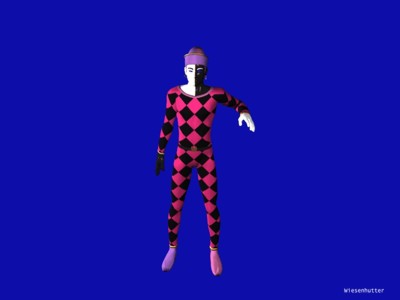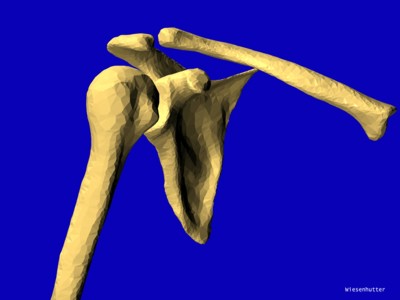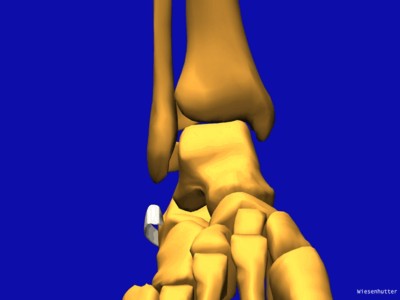U.C.L.A. Rheumatology Pathophysiology of Disease Course Lecture, Second Year Medical School 2005
Joint Configuration page 5
Windows Media Player
QuickTime Media Player
Real Media Player
The different configuration of joints at different locations of the body are discussed.
Animation: Joint Configuration : The different configuration of joints at different locations of the body are discussed.
Animation: Joint Configuration : The different configuration of joints at different locations of the body are discussed.
Animation: Joint Configuration : The different configuration of joints at different locations of the body are discussed.


The configuration of a joint in each location of the body is unique and dictated by the needs and restraints of that location. The requirement of stability versus mobility will often lead to structural trade-offs. The shoulder joint is a ball on a shallow disc joint that offers little bony restraint and results in the maximal amount of range of motion. Whereas, the ankle joint is a mortised hinge joint with extensive bony enclosures, which allows for flexion and extension while providing a highly stable platform for the standing or moving body.

